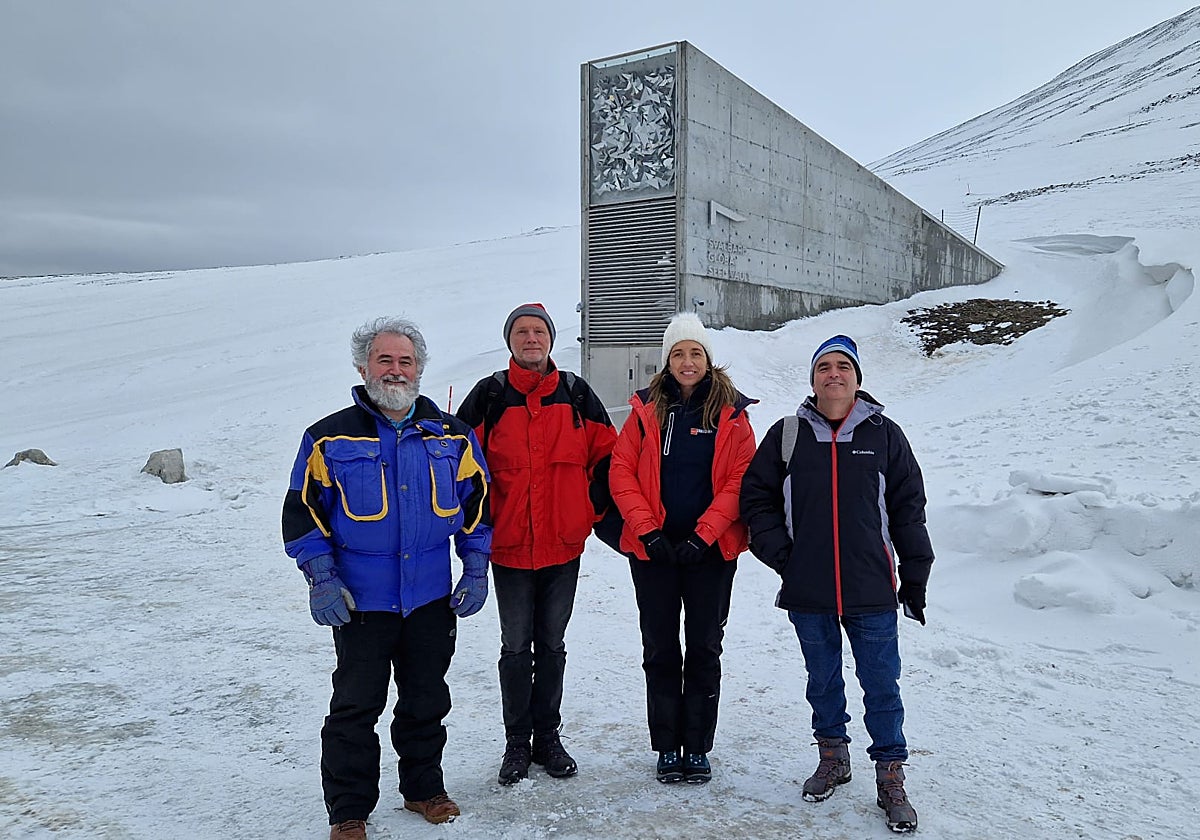Why have tomato seeds from the sunny Costa del Sol been sent to a frozen Norwegian archipelago?
A research centre in Algarrobo has been collaborating with the Svalbard Global Seed Vault in Norway, considered the 'safe' for our future food supply
What began as a Spanish-German international cooperation project more than six decades ago has become a major international reference centre for agricultural research, decisive for the development of the booming subtropical crop sector in southern Spain.
La Mayora experimental station, based in Algarrobo on the eastern stretch of the Costa del Sol, is today part of the Institute of Subtropical and Mediterranean Horticulture (IHSM) of the Spanish National Research Council (CSIC) and the University of Malaga (UMA).
Among its most important collections are the seeds of vegetables and fruits such as tomatoes and custard apples, among many others. A sample of the seeds of the fruit that Christopher Columbus brought back to Europe more than five centuries ago on his voyages to America, and which are kept on the La Mayora estate in the Axarquía, have recently been deposited in the Svalbard Global Seed Vault in Norway, considered the 'safe' for our future food supply.
As reported by the CSIC in a statement, a delegation has recently travelled to the Norwegian archipelago to deposit seeds of crops such as tomatoes, onions, beans, cabbage, borage or thistle.
In 2022 the National Institute for Agricultural and Food Research and Technology (INIA) was integrated into the Higher Centre for Scientific Research (CSIC), an institution under the Ministry of Science, Innovation and Universities. It was then that seeds of Spanish plant species began to be deposited in the Svalbard World Seed Bank in Norway.
This work continues today to ensure that, within a decade, 40 per cent of the active collections conserved in the 15 seed banks distributed throughout Spain will not only have a copy in the Centre for Plant Genetic Resources (CRF) of INIA, but also in the vault in Svalbard, the largest collection of agrobiodiversity in the world.
Permafrost
The layer of permafrost on the island means that even without the additional refrigeration (-18ºC/0 F) that the facilities have, the seeds will remain at low temperatures, allowing their long-term conservation.
This magnificent vault houses more than 1.2 million samples of different crops in its underground chambers, constituting the largest secure collection of global agricultural biodiversity that safeguards the basis of the world's food supply.
But there is no need to go to the North Pole, as there are banks in all countries and thanks to the collections like the tomato seeds from Algarrobo, it makes seeds available to farmers and researchers with the aim of incorporating interesting characteristics such as taste, colour, ability to adapt to climate change or tolerance to certain pests or diseases.
In recent years meticulous work has been carried out following strict protocols to avoid crosses or mixtures so that the seeds maintain the original diversity and remain viable for as long as possible, and so that they can reach future generations.
On this occasion 42 different species have been included, including 33 new tomato varieties. This is in addition to those already deposited, making a total of 94 varieties of tomatoes in the vault. Added to the tomatoes are 23 new varieties of beans that bring the total number of different types to 225, as well as cabbage, chard, spinach, lettuce, onions, peppers, borage and thistle. Traditional varieties of wheat have also been included in the shipment, according to the CSIC.
The national research body has highlighted "Spain's commitment to the conservation of agricultural biodiversity", The CSIC concluded, "Now, our country has the responsibility to continue contributing materials and knowledge since, for centuries, we have collaborated in the introduction of different varieties in Europe, Africa and Latin America, diversifying agriculture, making our gastronomy much more varied and bridging cultures."

